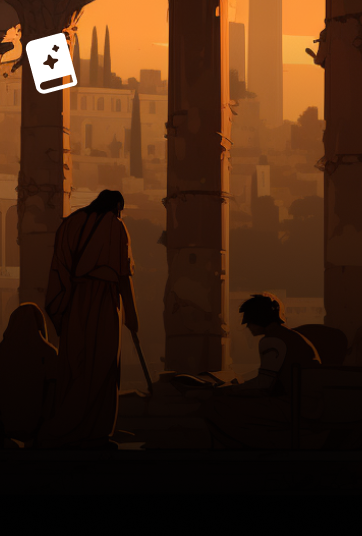
A Call to Arms

A Call to Arms
A Call to Arms
Ratings1
Average rating2
I didn't enjoy this book very much. I'm giving it two stars instead of one, because I feel like there is the seed of a decent book in there somewhere, although it really doesn't manage to blossom.
I'm an avid fanfic reader, and I've written it too. It's very easy to accidentally write characters that are too perfect. I've also read a lot of published books with too-perfect characters, and it isn't something that usually bothers me. So I don't throw around the term “Mary Sue,” because I don't really have a problem with Mary Sues, and also because I don't usually mind it when writers create highly idealized characters - especially writers who belong to and/or are portraying members of marginalized groups.
But Gib, wow. Not only is he a Mary Sue, but beyond that, I don't agree with the morals or character traits that the authors put out there as perfect and pure. Another character buys Gib time with a prostitute. Gib rejects the prostitute, partly because he feels like having sex with her would demean her, and he says something to this effect to her, in front of all of his friends. Of course it deeply moves her that someone cares enough not to have sex with her. So apparently, she goes about her daily life absolutely miserable, just waiting for a kind farm boy to tell her how much he pities her. He could have rejected her in a way that was respectful to her profession. It was hard not to contrast this scene with those in the Whyborne & Griffin series, when Whyborne, who is hopelessly prudish, interacts with sex workers and never judges them at all; no matter how uncomfortable he feels talking to them, he treats them as human beings.
This was an incredibly slow read for me, because I was constantly bored; I never felt engaged with the characters. Gib is a sort of standard YA blank-slate type of hero. I could not tell you many of his individual personality traits, other than the Mary-Sue stuff. His love interest, Joel, is painfully sweet. He's also a mage trainee, but we only see him do magic once in the entire book. Gib has a few friends, too, but they are all underdeveloped characters. The only one who gets a small amount of attention is the lone female in the group, Kezra, who is of course sharp-tongued and physically strong; it's implied that she's learning to be a fighter because her father disapproves. I rolled my eyes a lot reading this book.
Good and evil are really simplistic here. It was easy from the moment characters were introduced to know if they were evil or not, because the villains were almost all classist, sexist, xenophobic, homophobic, etc. It's okay if a villain is one or more of those things, sure, but it's somewhat lazy to use bigotry as a villain's sole character trait, for every villain.
The plot did not really start taking shape until about 30% into the book, and the mystery does not get solved in book one. I can't really complain about that, as I picked it up knowing it was the start of a series. But I don't want to keep reading the series.
The romance was okay, pretty much what I expected from a book with young protagonists, but it is not worth reading the book for. There are also epithets: “the mage trainee,” “the older boy,” “the sentinel trainee.” Pronouns would've made sense in all the sentences in which the authors used epithets.
Overall, if this book had been maybe a third of its length, and everything had gotten moving much more quickly, I would've enjoyed it much more and overlooked a lot of its flaws.